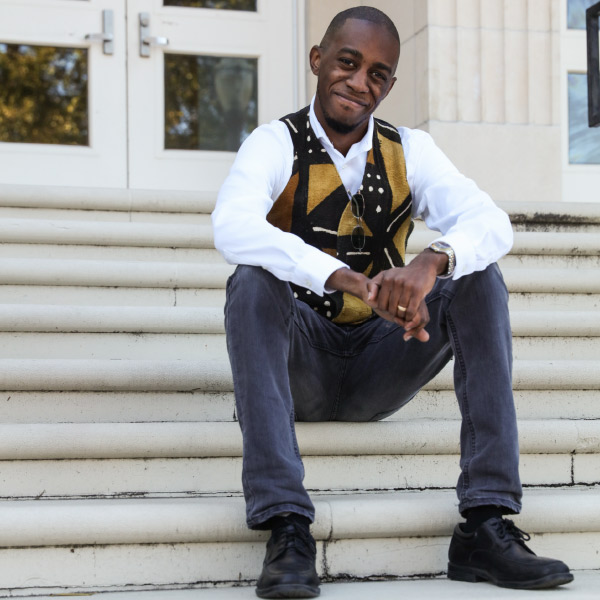Malcolm Foley
Baylor Student Regent
PhD Candidate in Religion
To be unambiguously Christian is, first and foremost, to have one’s life revolve around, as Paul told the Corinthians in 1 Corinthians 2:2, “Jesus Christ and him crucified.” For one’s life, it means that faith in Jesus Christ as the sole author and finisher of our salvation manifests itself tangibly in love of God and love of neighbor through engagement with local Christian communities (Hebrews 10:24-25) and engagement with the world. But of course, that only addresses the “Christian” half of the phrase. To be so “unambiguously” is to be Christian in such a way that it is clear that the animating principle of your love, work, and life is God’s work through Christ in you.
In an educational environment, unambiguous Christianity manifests itself in academic fearlessness because we understand that if something is true, we can pursue it because it aligns with the work of our Creator. All truth is indeed God’s truth, so there is no realm of knowledge that the Christian ought to feel is off limits. This also means, however, that the Christian scholar is willing to interrogate the assumptions and conclusions of her field to submit them to that criteria, asking the question: Does this study focus my attention on the truth, beauty and goodness of God or does it drill more deeply into an assumption that humanity’s role is to dominate creation rather than steward it?
As a graduate student, I have experienced this reality as both a student and as a teacher. As a student, it is clear in the respect and the care that my advisors and professors have expressed for me in the midst of the stressful endeavor that is graduate school and in their willingness to equip me to do the work that God has called me to do.
“All truth is indeed God’s truth, so there is no realm of knowledge that the Christian ought to feel is off limits.”
As a teacher, that means that I personally invest in the cultivation of the virtues of my students. In the case of the theological virtues of faith, hope and love, I know that those are things only stoked by the work of the Spirit, but as I teach Christian Scriptures and Christian Heritage, I do so in order to foster and support robust belief in the divine mysteries revealed to us in Scripture and the history of the Church, while exposing students to the latest in critical scholarship.
Baylor is one of very few institutions with the vision and the personnel that can actually do this well. The Illuminate academic plan illustrates an opportunity for Baylor to be a beacon of the Gospel not only in higher education but in the world. Through the thousands of students who are taught here, the faculty who teach and research here, and the staff who keep the machine running smoothly, Baylor can continue to dispel assumptions that some may have about anti-intellectualism among Christians. Instead, those assumptions will be met with the fact and the proclamation that God has called us to love Him with our hearts, souls, strength, and minds and it is our goal to do precisely that.
Some of the challenges that I have seen include the denominational and ideological diversity of the Christian community itself, the public image of the Christian faith, and the internal challenges of aligning multiple constituencies to the same goal. None of these challenges, however, are intractable. In many cases, it would appear that denominational and ideological diversity would necessarily lead to irreconcilable differences, but they need not be. Differences in understanding the proper mode of baptism need not restrict scholars from working together to find solutions for global poverty and hunger.
The public image of the faith is less our problem than we may think. Because we only have control over what we do, we must focus primarily on being faithful with the gifts that the Lord has given us rather than focusing on how we are perceived.
Lastly, organizational cohesiveness is the goal of any institution. For Baylor as a university, in the few years that I have been here, I have seen that cohesiveness grow, especially under our new leadership. President Linda Livingstone and her President’s Council are exceptional and accessible people devoted to Baylor and the work of God in the world.
